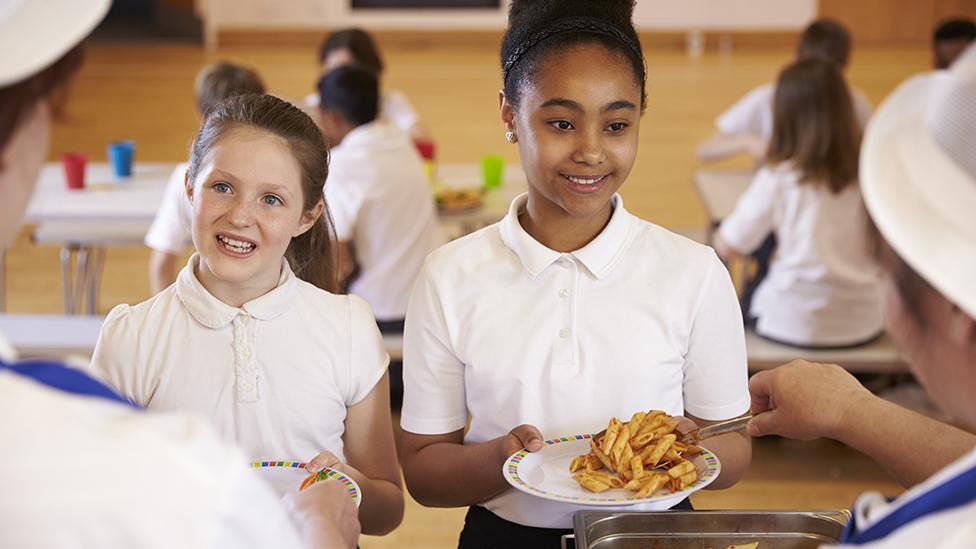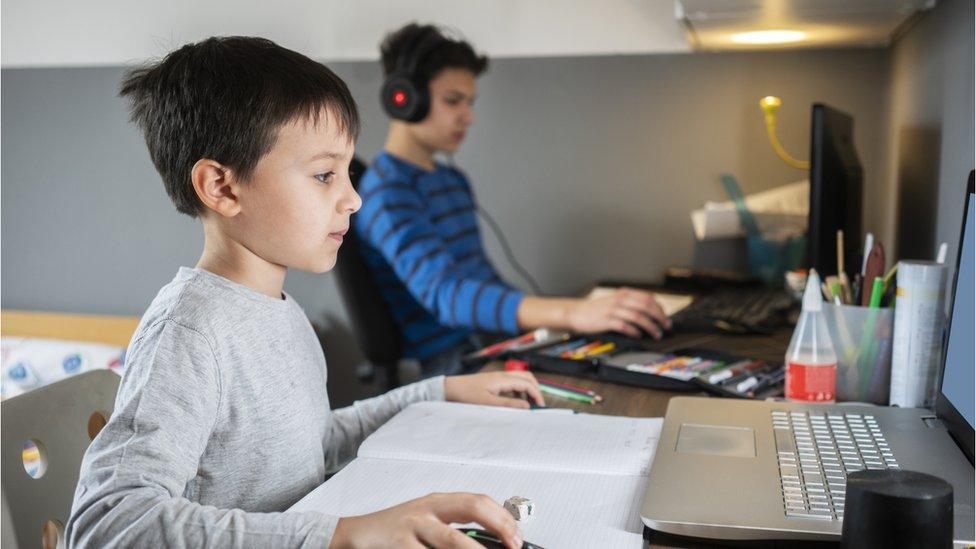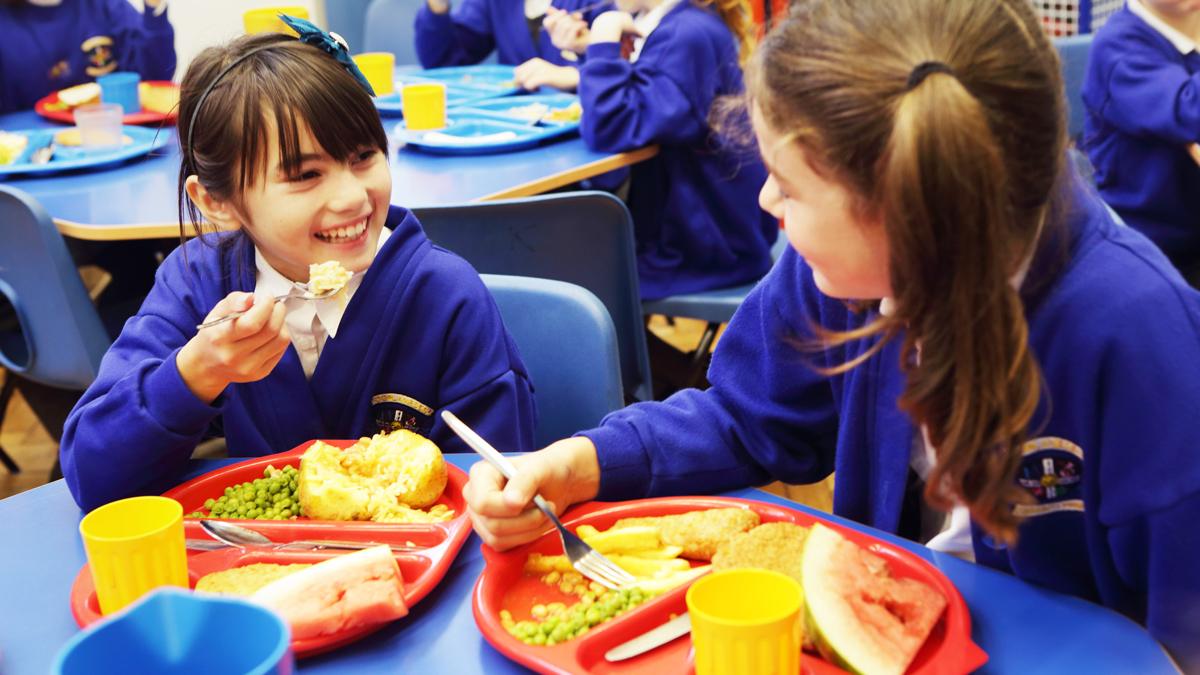Covid-19: Pupils 'may suffer malnutrition' over school meals decision
- Published

A Coleraine primary principal has warned some pupils may suffer "malnutrition" because of a decision not to provide meals in school until February.
Geoff Dunn of Ballysally Primary has written to Education Minister Peter Weir urging him to overturn the move.
While most pupils are to be taught remotely, vulnerable children and key workers' children can attend school.
Special schools remain open, where meals and transport will continue.
But on Friday the Education Authority (EA) told mainstream schools in Northern Ireland that meals would not be provided for pupils who attend.
Instead, they must bring a packed lunch, though schools have been told that they can put catering staff "on call" if a pupil turns up without one.
Mr Dunn, who was made an MBE for services to education in 2015, said he was "utterly dismayed" by the EA's decision.
'When a child is hungry, they cannot learn'
"For the vast majority of pupils in this school, of which we have about 55 attending next week, they are entitled to a free school meal," he wrote to the minister.
"Pupils and parents/carers fully expect it to be a hot, two-course meal.
"For some of our pupils these meals are the only hot meal they have each day. When a child is hungry, he or she cannot learn.
"I fear that a failure to address this situation will result in malnutrition of certain pupils and I would ask you to act decisively in this matter."
Payments to families of children eligible for free school meals will continue, but Mr Dunn said a hot meal should be provided as well if children are in school.
"I appreciate the fact that parents/carers are receiving payment for these meals, but it is not the child's fault that the department cannot facilitate an appropriate process to avoid duplication of payment," he wrote to Mr Weir.
"I would strongly urge you to reconsider this decision, to permit even a rota basis canteen staff to attend school to meet the basic humanitarian needs of these most vulnerable pupils."
Investment in remote learning
Meanwhile, Mr Weir has said that £7m has been spent to date on remote learning for pupils.
He said that about 24,000 laptops and digital devices had been made available to pupils who did not have one and a further 10,000 were being bought "as a matter of urgency."
Some 8,000 wifi vouchers have also been bought for disadvantaged children.

But Mr Weir told the assembly on Wednesday that remote learning still posed many challenges, even though schools were now better prepared for it.
"In some parts of Northern Ireland, the general level of connectivity will not simply improve overnight or, indeed, in the foreseeable future, so it is about trying to work round those issues," he said.
"The critical message is that, in order to minimise the disruption to young people, we try to keep the level of remote learning to the minimum level necessary, because the best place for children is in school," he added.
The department has said that it is now a legal requirement for schools to provide remote learning to all pupils.
Related topics
- Published2 July 2021
